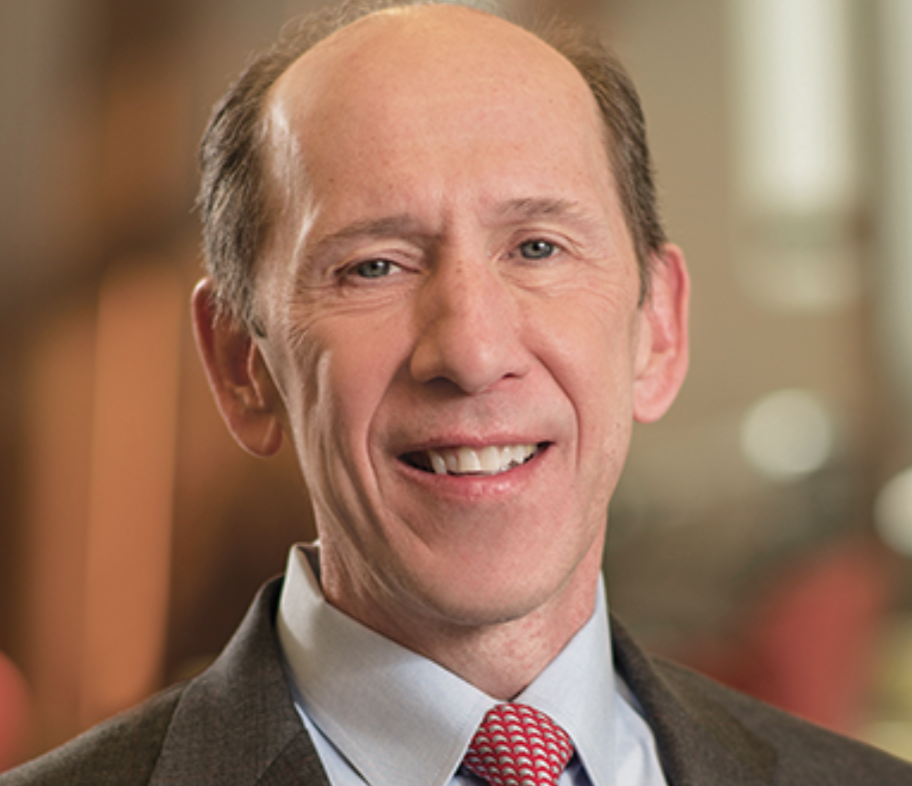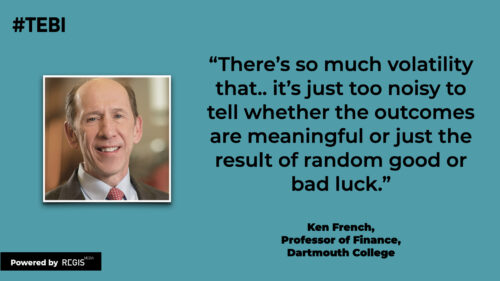
You would think that a distinguished finance professor who hangs around with Nobel laureates wouldn’t need to use a financial adviser. And no doubt Ken French could manage without one if he wanted to. But, he says, it’s the most important cheque he and his wife write.
Speaking on the latest Rational Reminder podcast, French describes his relationship with his adviser as “enormously valuable.. for lots and lots of reasons”.
French, the Roth Family Distinguished Professor of Finance at the Tuck School of Business at Dartmouth College in New Hampshire, says he likes to decide how the couple’s portfolio is invested, but is happy to leave everything else to his adviser.
“My adviser is enormously helpful on dealing with our taxes, dealing with our estate planning, dealing with what we’re trying to accomplish with whatever wealth we have, helping us think about the charities we want to be involved with.
“It’s just somebody who can act as a sounding board — clarifying the trade-offs we encounter in lots of areas of our lives. It saves us time and an enormous amount of anxiety. There are lots of questions we wouldn’t even know to ask without the help form our adviser.
“It gives you some comfort, being able to sleep at night, knowing that there’s someone else who’s worried about my problems.”
Here are some of the other highlights:
The logic of indexing
“The logic is simple.. (Active investors) should expect to underperform., As a group, before fees and expenses, (active managers) deliver the market. After fees and expenses it’s going to be something less than the market.”
The difficulty of outperforming as an active investor
“There may we be (an active manager) who can beat the market. The problem is twofold. First, you’ve got to figure out who’s going to be able to beat the market consistently. And second, is there going to be any of the extra return available for me as an investor?
“Even if I could figure out a manager who had great skill, it’s not apparent that other investors would allow me to benefit from that skill, because they basically are going to flood in and dilute any expertise that manager has.”
Luck and skill in active management are virtually indistinguishable
“There’s so much volatility that it’s going to be hard, even after the fact, to assess whether (a particular) manager has done a good job. It’s just too noisy to tell whether the outcomes are meaningful or just the result of random good or bad luck.”

Why he doesn’t use hedge funds
“If I truly have a great hedge fund manager, they’re going to be the scarce resource. And in economics, they capture the rents. Why should they leave any of that on the table for their investors?.. I just can’t think there’s any reason to play that game.”
His preference for book-to-market as a measure of value
“The reason I like book(-to-market) is because I care a lot about transactions costs. I don’t want to have a portfolio that’s turning over all the time, just because my signal is so noisy. So if I’m basically capturing the same thing with book that I’d be capturing with some other numerator in my ratio, I’m going to go with book.
His views on ESG investing
“I think it’s great. I don’t mean that as a finance professor; I mean that as a citizen of the world.
“What are the consequences of a lot of us saying that we are gong to invest more of our portfolio in companies that are environmentally sensitive (and) focused on sustainable strategies?
“As a finance professor, what I’ve got to tell you is that the consequences of that will be to drive up the price.. of those sustainable companies and drive down the expected return. That’s not to say you don’t want to do it. It’s just to say it’s not a free lunch.”
How to judge the quality of an investment decision
“I have spent most of my life studying empirical data. And what I know is volatility, the unexpected part, dominates most outcomes.
“When I judge the quality of an investment decision I’ve made, I don’t pay much attention to the outcome. I [pay attention to (whether I made) a good decision based on the information I had at the time. The outcome is dominated by things I can’t forecast.”
You can listen to the podcast here. TEBI founder Robin Powell was interviewed in Episode 27 of the Rational Reminder series, and that is well worth listening to as well.
Like his long-time collaborator Eugene Fama, Ken French is also a consultant to Dimensional Fund Advisors. If you’re interested in finding out more about Dimensional and its approach to investing, here are some other articles you may like to read:
Why the disconnect between the economy and markets?
The widening valuation spread between growth and value
What will the recession mean for small-cap stocks?
How worried should investors be about the recession?
Remember, you’ve trained for this
Study provides fresh insight on bond returns









